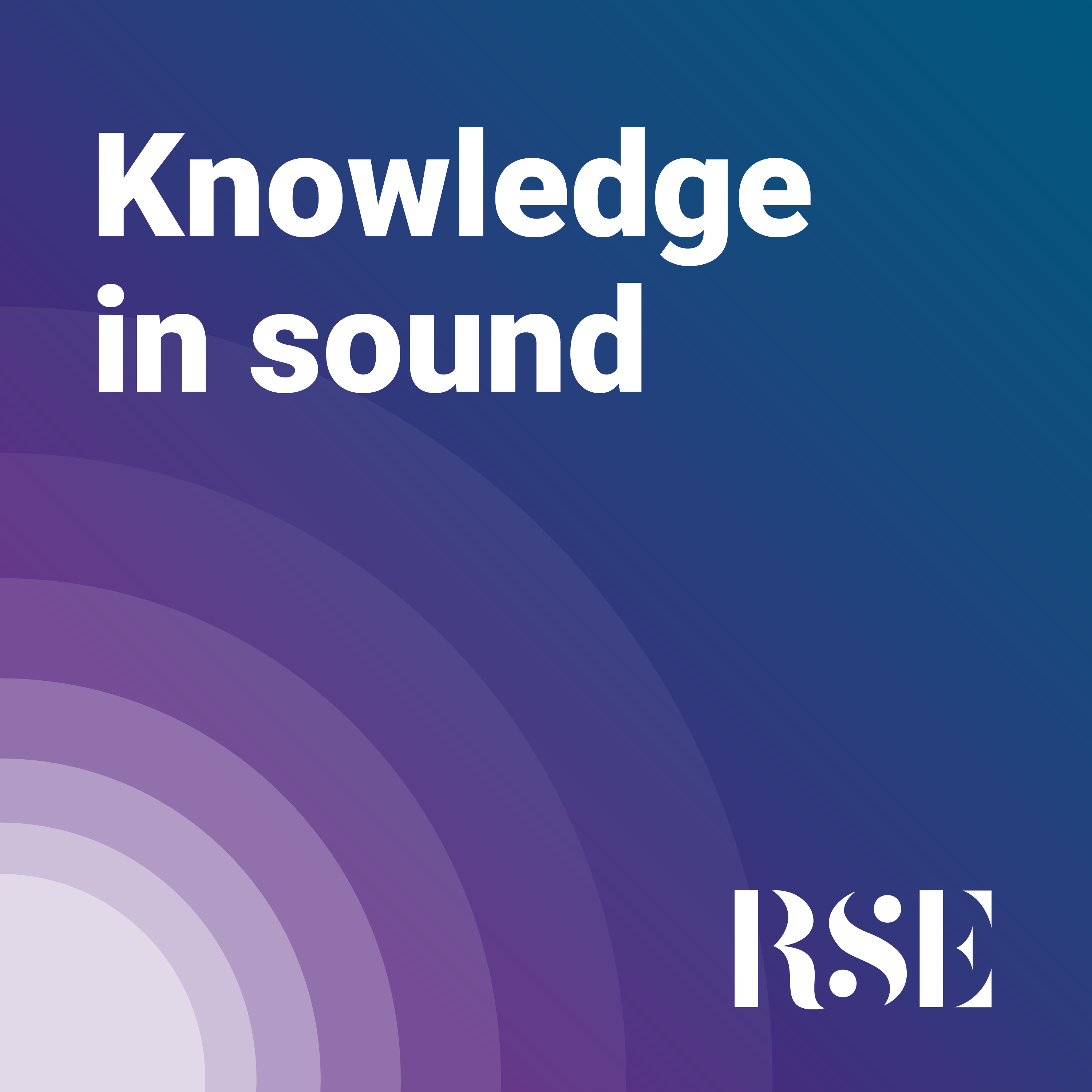Episode Transcript
Pursuing ideas and truth without fear
Academic freedom and human rights are interwoven.
In June, the RSE took over the secretariat for the UK Academies’ Human Rights Committee (UKHRC). The UKHRC consists of seven academies from the UK and Ireland and responds to alerts, by the International Human Rights Network, sent when an individual’s freedom is facing prosecution and abuse due to their scholarly activities.
But what do the academy and human rights have to do with each other? There is, of course, the obvious – both embody essential elements of a democratic society that values individual liberty, intellectual diversity, the pursuit of knowledge and the free exchange of ideas.
Knowledge in sound is an audio transcription of the Royal Society of Edinburgh's blog series. Featuring in depth analysis and opinion pieces from some of Scotland's leading thinkers. The articles offer personal views on a variety of issues. These views are not those of the Royal Society of Edinburgh and are intended to provide different perspectives on a range of current issues.
Human rights – to freedom of thought, expression, association and education – encase and protect crucial features of academic work. These include the ability to pursue ideas and truth, wherever they may lead, to critique power and to engage in open dialogue without fear of censorship, persecution or reprisal.
In turn, academic freedom can underpin the realisation of human rights. Scholars can question prevailing orthodoxy, challenge societal norms and explore alternative perspectives. Academic institutions are places where diverse ideas and opinions can be debated and tested through rigorous scholarship.
Restricting academic freedom can also clearly violate rights. Take as an example, an academic researcher critical of their government who is arrested on charges of espionage, collaboration with a foreign government and disclosing classified secrets – detained without trial, placed in solitary confinement and coerced into making false confessions.
There are similarly clear examples of restrictions on academic freedom in the service of rights violations, such as direct and indirect state prohibition of research and debate – on topics ranging from localised conflicts to women’s access to healthcare – that keep rights abuses from scrutiny.
Scholars At Risk, a civil society network tracking the relationships between human rights and academic freedom around the world, demonstrates that such examples are not limited to particular types of state or place. They are found in every continent, across democracies and autocracies.
However, the relationship between academic freedom and human rights is not necessarily mutually reinforcing, or destructive.
In practice, it is well recognised that the pursuit of knowledge can generate real harms to individuals and societies and that the protection of rights can lead to restrictions on academic freedom.
Most obviously, we recall the horrors of biomedical experimentation on humans that gave rise to research ethics regimes. But in a contemporary setting, states and societies are called on to grapple with the tensions between the two goods in numerous and subtle ways. What are the limits of acceptable academic research – across the sciences, social sciences and humanities – in contexts where it might be used to facilitate or legitimate human rights abuses or abusers? And to what extent are these concerns wielded in such a way that they produce a chilling effect over types of research, institutions and sectors?
There are no easy answers. What is clear is that the relationship between academic freedom and human rights is one that evolves in context – and in which academies such as the RSE must play a central role.
Dr Deval Desai, Young Academy of Scotland member; RSE International Committee member; Lecturer in International Economic Law, the University of Edinburgh Law School.
Knowledge in sound is an audio transcription of the Royal Society of Edinburgh's blog series. Featuring in depth analysis and opinion pieces from some of Scotland's leading thinkers. The articles offer personal views on a variety of issues. These views are not those of the Royal Society of Edinburgh and are intended to provide different perspectives on a range of current issues.


